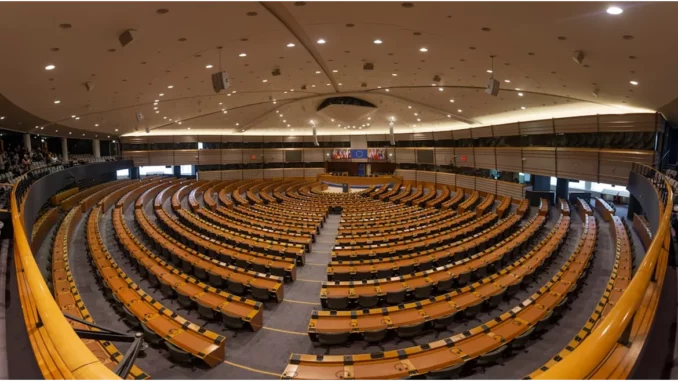
In a swift and decisive move on July 31, 2024, the North Carolina House of Representatives voted to override three vetoes issued by Governor Roy Cooper. These bills, addressing rental regulations, digital currency, and speed limits for off-road vehicles, have ignited substantial debate and concern. While the House has decisively moved forward, the ultimate fate of these bills now rests with the Senate. This article delves into the intricacies of each bill, exploring their implications and the ongoing debates surrounding them.
House Bill 556, aimed at preventing local governments from enacting regulations that allow landlords to reject tenants using federal housing vouchers, has been a particularly contentious issue. Critics, predominantly Democrats, argue that such a measure exacerbates the housing crisis and promotes discrimination. Rep. Marcia Morey, D-Durham, articulated her opposition, stating, “It’s discrimination to say you cannot consider federal subsidies when applying for housing, and we know there’s a severe housing crisis.” Morey contends that the bill would create legal ambiguities, potentially increasing legal expenses for renters in disputes with landlords. Governor Cooper, in his veto message, underscored the potential harm to low-income families, the elderly, and people with disabilities, arguing that it would make it harder for these vulnerable groups to find affordable housing. Despite these concerns, the House voted 74-40 to override the veto, with proponents asserting that the bill promotes fairness and opportunity.
House Bill 690, which seeks to ban state agencies from accepting digital currency for payments, represents another significant point of contention. Governor Cooper’s veto was premised on the belief that North Carolina should wait for federal regulations to address the issue, describing the legislation as “premature, vague, and reactionary.” He emphasized the need to address existing cybersecurity threats instead. Supporters of the bill argue that the volatility of cryptocurrency makes it challenging to convert payments into a stable dollar amount. Rep. Mary Belk, D-Mecklenburg, disagrees with the bill’s restrictions, asserting that the digital economy has enough space for everyone and that limiting choices before fully understanding them is unnecessary. The House overrode the veto with a 73-41 vote, but the debate highlights the broader uncertainty and evolving nature of digital currencies. As the Federal Reserve continues to study options for digital transactions, the future of cryptocurrency regulations remains a contentious and evolving issue.
The third bill, House Bill 155, addresses the regulations governing modified utility vehicles, permitting them to operate on highways at higher speeds. Governor Cooper vetoed the bill, citing safety concerns, arguing that these vehicles lack many of the safety features found in traditional vehicles, thereby posing a risk of serious injury or death. Rep. Zack Hawkins, D-Durham, echoed these concerns, urging his colleagues to prioritize safety. “It’s best that we err on the side of caution and make sure that we’re keeping the safety and security of those on the roads and law enforcement and everyone else in mind,” Hawkins stated. Despite these warnings, the House voted 73-41 to override the veto, with supporters contending that the bill would benefit beach communities and other areas where such vehicles are commonly used.
As the House acts swiftly to override these vetoes, the bills’ future remains uncertain as they await action from the Senate. Both the Senate and House are scheduled to reconvene on September 9, and further action on these vetoed bills is anticipated. House Speaker Tim Moore acknowledged the challenges of coordinating around the schedules of 120 members but remains optimistic about the prospects of the bills. “It’s a tough thing working around the schedules of 120 members to try to make sure you can accommodate as many schedules as possible,” Moore told reporters after Wednesday’s session.
The debates surrounding these bills highlight the complexities and challenges of governance, particularly when addressing issues that impact vulnerable populations, emerging technologies, and public safety. As North Carolina navigates these legislative waters, the outcomes of these bills will undoubtedly shape the state’s future in significant ways. The House of Representatives’ decision to override Governor Cooper’s vetoes underscores the ongoing debates and challenges in state governance. As these bills await action from the Senate, the discussions surrounding them reflect broader societal issues and the evolving nature of technology and public policy. Their ultimate implications will be felt across the state, influencing North Carolina’s trajectory in various critical areas.

Be the first to comment